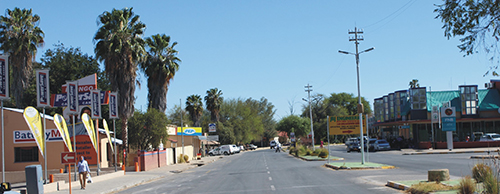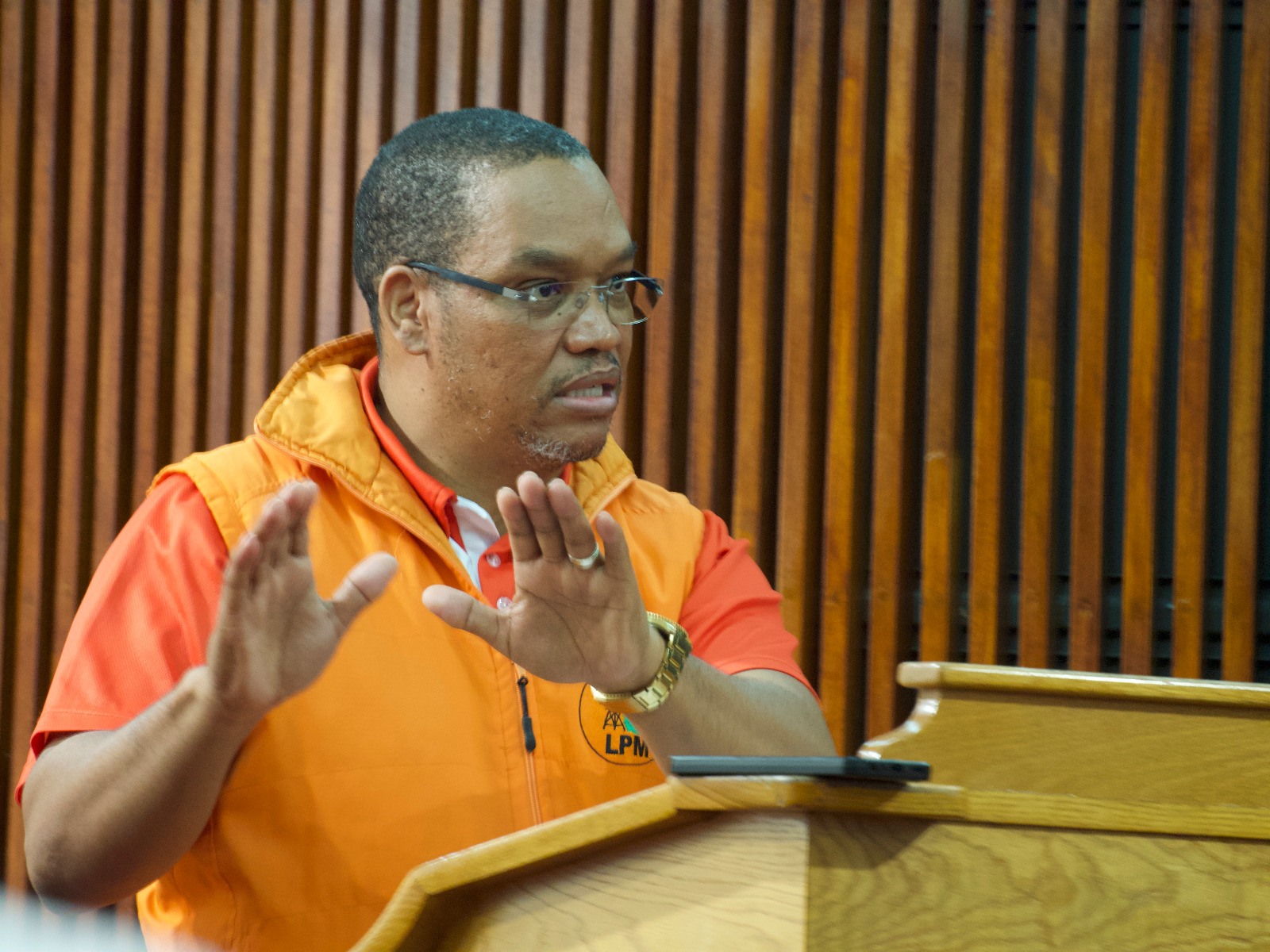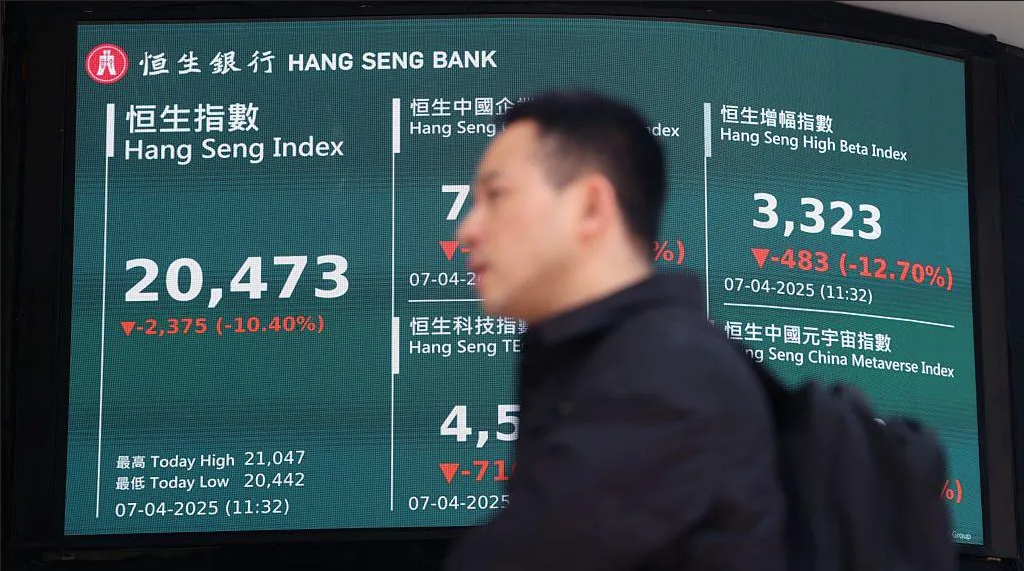THE Omaruru community feels it is being held hostage after operating without a town council for the past two years following the suspension of the councillors by former local government minister Charles Namoloh for alleged mismanagement.
An interim administration was placed to run the town on the minister’s behalf but according to the community, the interim administration is not acting in the best interests of Omaruru.
The most recent blow was a notice from the municipality that businesses at Omaruru will have to pay business signboard tariffs from August.
The tariffs are based on the size of the signboard (with some businesses having several located at strategic places), with the result that many businesses must now fork out thousands of dollars extra a month which could be used elsewhere.
Businesses were also threatened that if they erect boards without consultation and approval from the municipality, it would be regarded as “fraud” and will result in penalties.
The letter was signed by acting CEO Johannes Iipinge nine days before implementation.
Businessowners say they never paid such tariffs before.
These signs are considered crucial for business exposure that in turn develops the local economy. To counter the move, businesses have removed their signboards.
The business community argue that had they been given enough time to consult over the matter with the municipality, an amicable solution that would benefit both parties could have been found.
“They could have told us about their plans and we could have worked out an agreeable rate. We are not against having this law; nor are we against cooperating with the municipality, but they want us to pay and they don’t want to be held accountable with what happens to the money. Omaruru could easily be the best small town in Namibia if the municipality and businesses worked together,” said businessman Chris Johnston.
Vice chairman of NCCI’s Omaruru chapter Alexander Steyn agreed that the municipality could have first consulted the business community, and could still have made money, but now they cannot because businesses are removing the boards because they are too costly.
The sign tariff comes shortly after the interim municipality spiked property rates and taxes by up to 400% or more. Even Ozondje residents say they are feeling the pinch.
This increase comes after a property valuation that received hundreds of objections was passed in a valuation court in June. The main objection was that the valuator did not inspect every property as per law and only used old plans from previous valuations.
Residents said they never saw, or were approached by valuators and yet they now have to pay major increases even where no improvements were made since previous valuations five and 10 years ago.
The sentiment shared by many people was that they did not mind paying increased rates and taxes relative to inflation, but that this latest increase was antagonistic towards the community. Residents are planning to take the matter to the High Court.
The valuation can also “break” those who depend on a limited budget, and force businesses to adjust wages for workers to keep their heads above water.
According to suspended councillor Christian Nanuseb, the interim administration does not know what is going on and therefore was not capable of addressing the needs of the community, adding that since there is no council, no resolutions can be taken to implement the increase and institution of tariffs.
He said that the suspended council had a good working relationship with the community and businesses but the current administration behaved as if it had some sort of “revenge” against the community.
Hannah Alpers is among those who say they are translocating from Omaruru because they are tired of what was happening to the town. She said the suspended council did more in the 10 years that she was actively involved in Omaruru than previous administrations, and the interim council.
Alpers was key to Omaruru’s annual art events. She also served on the Omaruru Basin Management Committee that had the municipality as a stakeholder; annual clean-up campaigns; and was a catalyst to the ‘Swedish Exchange’ programme.
According to her, the suspended council supported these programmes, which led to technical expertise development through cooperation with Sweden as well as the cultural promotion of Namibia in Sweden, which in turn benefited Omaruru. She said the suspended council also brought development.
“For the first time, one saw progress and now in an orchestrated attempt they have been removed by a democratic government without proof, putting the community back without justification,” said Alpers. “Now no one is available, and to whom are they accountable? There may have been many gaps in the management of the town but it was never as bad as it is now.”
She also questioned why the community must pay the interim administration higher rates and taxes but are treated in a hostile and irresponsible manner.
Locals believe that the council was suspended for political reasons.
“They got rid of us to give the electorate the impression that the non-Swapo leaders were corrupt and incapable of running this town. They want a Swapo council,” said Nanuseb, who is preparing to run for UDF in the coming elections.
The suspended councillors are Swapo’s Phillip Nghipandulwa, Tuli Gebhardt and Johannes Hamutenya; RDP’s Kretensia Garises and !Naruseb (deputy mayor); UDF’s Christiaan !Nanuseb (chairman of the management committee); and Nudo’s Vincent Kahua (mayor).
Stay informed with The Namibian – your source for credible journalism. Get in-depth reporting and opinions for
only N$85 a month. Invest in journalism, invest in democracy –
Subscribe Now!










